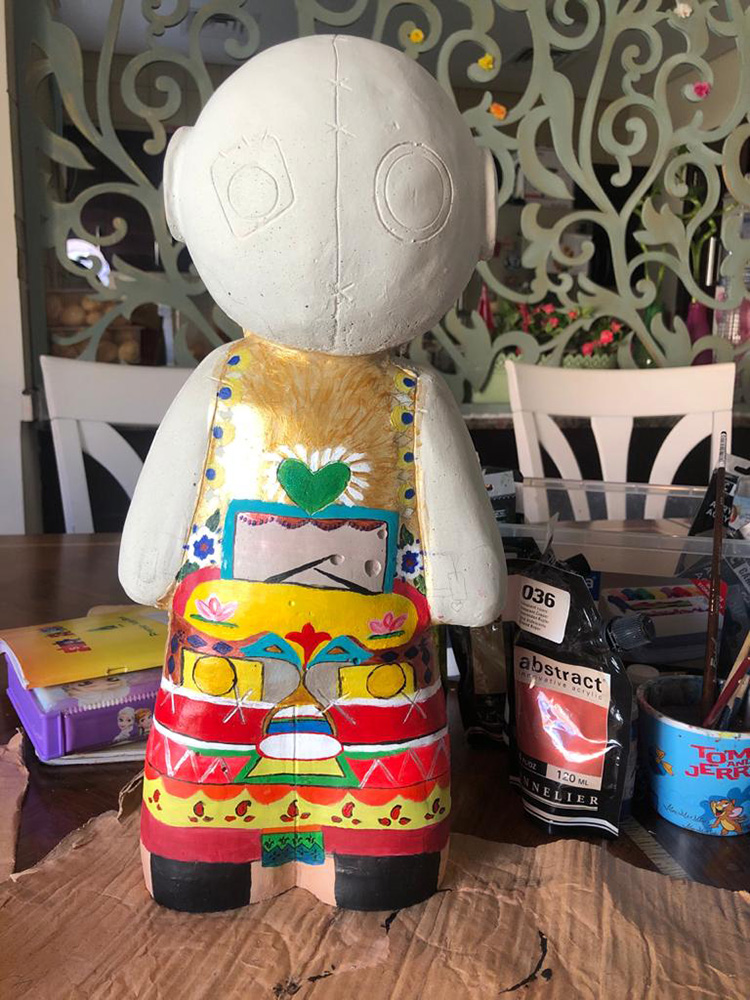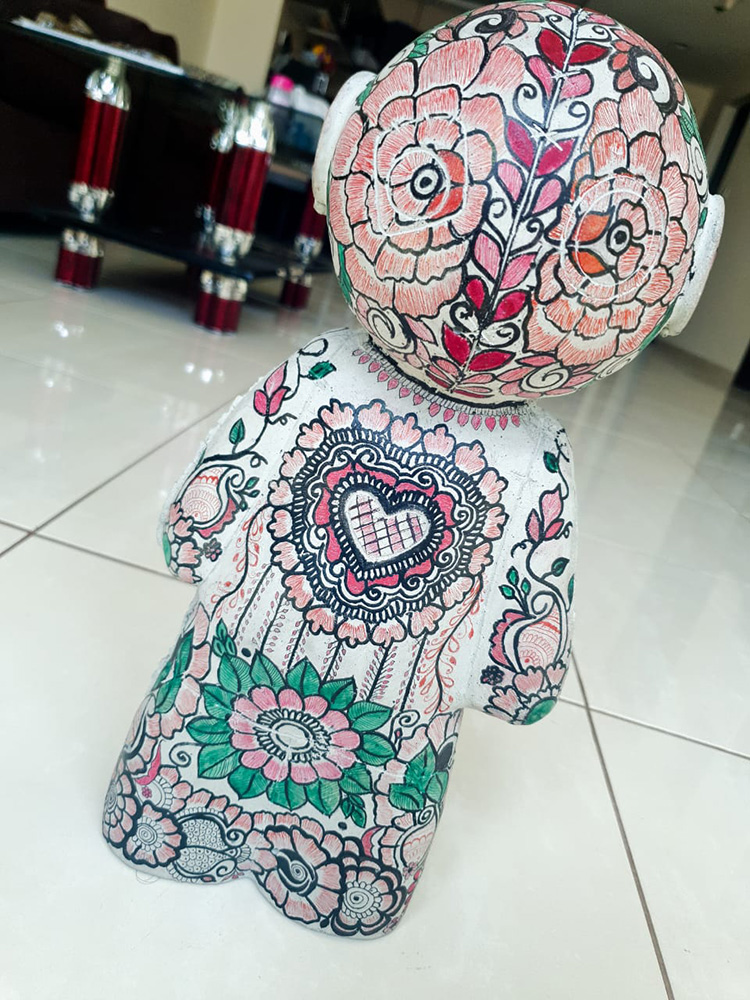DUBAI: Three Dubai-based Pakistani artists are taking part in a dolls’ installation that is a collaboration project by over 30 female artists called XLIX, 49 in Roman numerals, on display at the Dubai Design District.
The original doll is a clay sculpture designed and created by international artist and sculptor Griet Van den Auwelant. A mold was then created to clone 49 concrete dolls, according to the Dubai Design District website.
“Each of the 49 dolls is decorated and finalized by one of the female artists according to her artistic specialty,” the web page said. “The empowering visual of the 49 dolls carries a strong message. XLIX represents the universal bond between people; we all have the same human bodies but each is a magical individual. The 49 dolls are the same on the inside but different on the outside. It is an artwork created by women working together and empowering each other, a symbol of understanding, harmony, and respect for differences.”

Dolls on display at the XLIX exhibition at the Dubai Design District, Dubai, on March 28, 2021. (AN Photo)
The dolls will be displayed at the Dubai Design District until April 4, after which they will be moved to Dubai City Walk until May 2. The dolls are on sale, the proceeds of which will go to a cause that supports women empowerment.
Syeda Noor Zahra, a Dubai-based artist from Lahore, told Arab News on Sunday that she wanted to create something that would connect her “back home," and thus chose to work with Pakistan’s famous truck art, whose elaborate and flamboyant motifs have inspired gallery exhibitions abroad and prompted stores in Western cities to sell miniatures.
“The regional South Asian art, truck art, which is very popular, is what I chose,” she said. “As a child it really fascinated me and when I saw the doll, I knew I had to paint it that way, which for me is a beautiful form of art.”

This photo shows a doll half-painted with truck art in Dubai on March 28, 2021. (AN Photo by Asma Ali Zain)
Nimrah Noman, a henna artist, has experimented with henna designs on her doll.
“I first tried to paint the doll with real henna but the result was not that great and yellowish color streaks were very unsightly,” Noman, who has been living in the UAE since 2017, told Arab News, saying she thus decided to use acrylic paint. “I didn’t want to highlight the eyes of the doll too prominently so I designed flowers and vines around the doll as I would while using henna on the hands.”

The artwork of Pakistani artist Nimrah Noman on display at the XLIX exhibition at the Dubai Design District, Dubai, on March 28, 2021. (AN Photo)
Fatima Sherjan, originally from Lahore but based in Dubai for the past 13 years, has named her two dolls, ‘Dolls of Hope’ and experimented with Arabic calligraphy and floral abstraction. One of Sherjan’s doll has the word Amal written on it, which is Arabic for hope, while the other has vibrantly coloured flowers that depict joy.
The XLIX project was launched by Auwelant a year ago, bringing together 34 female artists of different nationalities and cultural backgrounds.
“The collaborative artwork represents women empowerment and celebrates the cultural diversity in the UAE,” Auwelant said. “We are all the same on the inside like all the concrete dolls and on the outside we are all uniquely ourselves.”
“I gathered all these women and they decorated the outside,” the sculptor added, “and we celebrated the diversity in cultures and that is how we lift each other up.”












